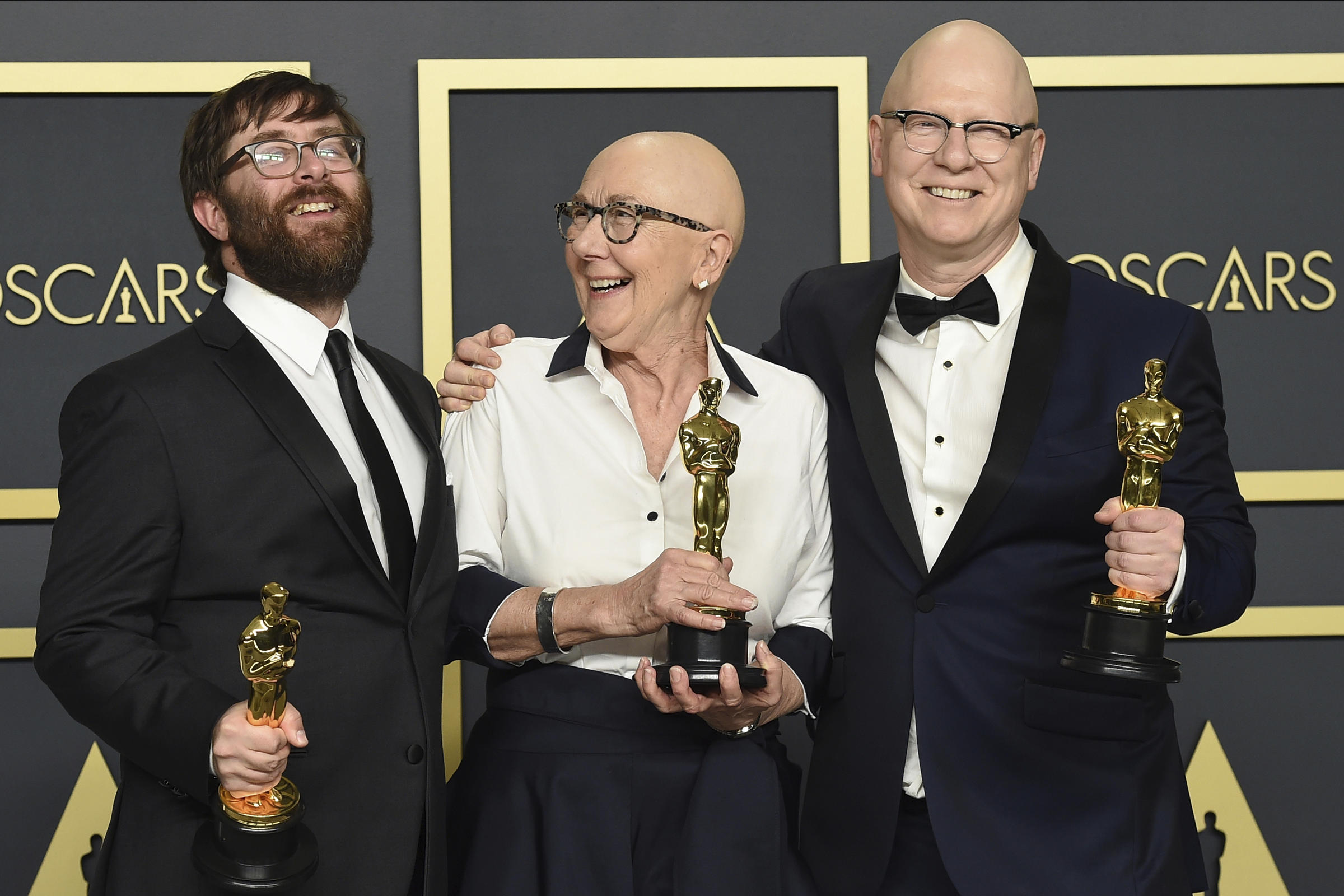Let's Talk Human Rights

Dayton-area Filmmakers Win Academy Award for Best Documentary Feature
By Rachel Carr '20
Last Sunday, American Factory won the Academy Award for Best Documentary Feature. The film tracks the struggles of workers at Fuyao Glass America, occupying the former GM assembly plant in Dayton. As Fuyao’s first American production facility, the automotive glass facility brought Chinese workers to help train the American workers. The documentary does more than tell the story of the tensions and connections between Chinese and American workers and business; American Factory elevates the voice of workers and defends human rights.
In Dayton, it was easy to think we know the whole story. When GM closed its production plant, no one could quite imagine what could replace the company that provided so many thousands of jobs. The opening of the Fuyao facility was highly publicized and widely discussed as a positive development. Even after the fanfare of the opening that the film features, Fuyao remained a part of local conversations. The Dayton Daily News reported in 2018 about the effort to unionize being voted down and in 2019 about the settlement for the fired union organizers.
Still, there was something missing from these local conversations and news reports: voice. American Factory uses the voices of all the workers to shape the narrative around globalization, rights, and labor. The film highlights the perspectives and experiences of Chinese workers in the US, and the US workers, including some of their experiences in visiting China. As local filmmakers, Julia Reichert and Steven Bognar recognize the power in centering this film on their voices. On screen, one former employee asks, “What voice do you have? When did you ever have a voice?”
This film is an answer to his question and a call to do more for economic justice. In the United Nations Declaration of Human Rights, article twenty-three states, “Everyone has the right to form and to join trade unions for the protection of his interests.” When local filmmakers turn their cameras and our focus to the violations of these rights, Julia Reichert and Steven Bognar become human rights defenders.
The International Labour Organization (ILO), an agency of the United Nations, sets labor standards and addresses the challenges the Fuyao workers face. When China joined the ILO in 1919 and the US joined in 1934, they committed to uphold the four fundamental principles: freedom of association and the effective recognition of the right to collective bargaining; elimination of all forms of forced or compulsory labor; effective abolition of child labor; and elimination of discrimination in respect of employment and occupation.
These global norms are also reiterated in the Sustainable Development Goals (SDGs) which provides a framework for all countries, including the US and China, to work towards more a prosperous future for all. Goal 8 promotes inclusive and sustainable economic growth, employment and decent work for all. This goal specifically targets the “protect[ion] labour rights and promot[ion] safe and secure working environments for all workers.”
Together, these international norms help us see the power of the organizers and understand filmmaking as a component of activism. It also helps us see that there is a shared struggle of workers for their rights in today’s world across the globe. Rather than pointing to violations, American Factory shows the impact of these violations and relationships that form around them. The personal stories drive the worker rights narrative in a way that elevates the voices and lived experiences of the workers.
Julia Reichert and Steven Bognar brought their stories to the national stage and challenged us locally to reconsider our priorities. This week, we celebrate not only the local Oscar win but also the rights of workers everywhere. “Our film is from Ohio and China,” said Julia Reichert in her acceptance speech, “but it really could be from anywhere that people put on a uniform and punch a clock, trying to make their families have a better life.”
Rachel Carr is a Dayton native and a student intern at the University of Dayton's Human Rights Center. She is a senior Political Science major, with minors in Sustainability, Energy, and the Environment (SEE) and English; she strives to strengthen community relations and protect the local environment. Rachel directed the podcast "America the Borderland" for the Center's Moral Courage Project and is a River Steward in the Fitz Center for Leadership in Community.
Photo: 97.1 WVXU | Dayton
